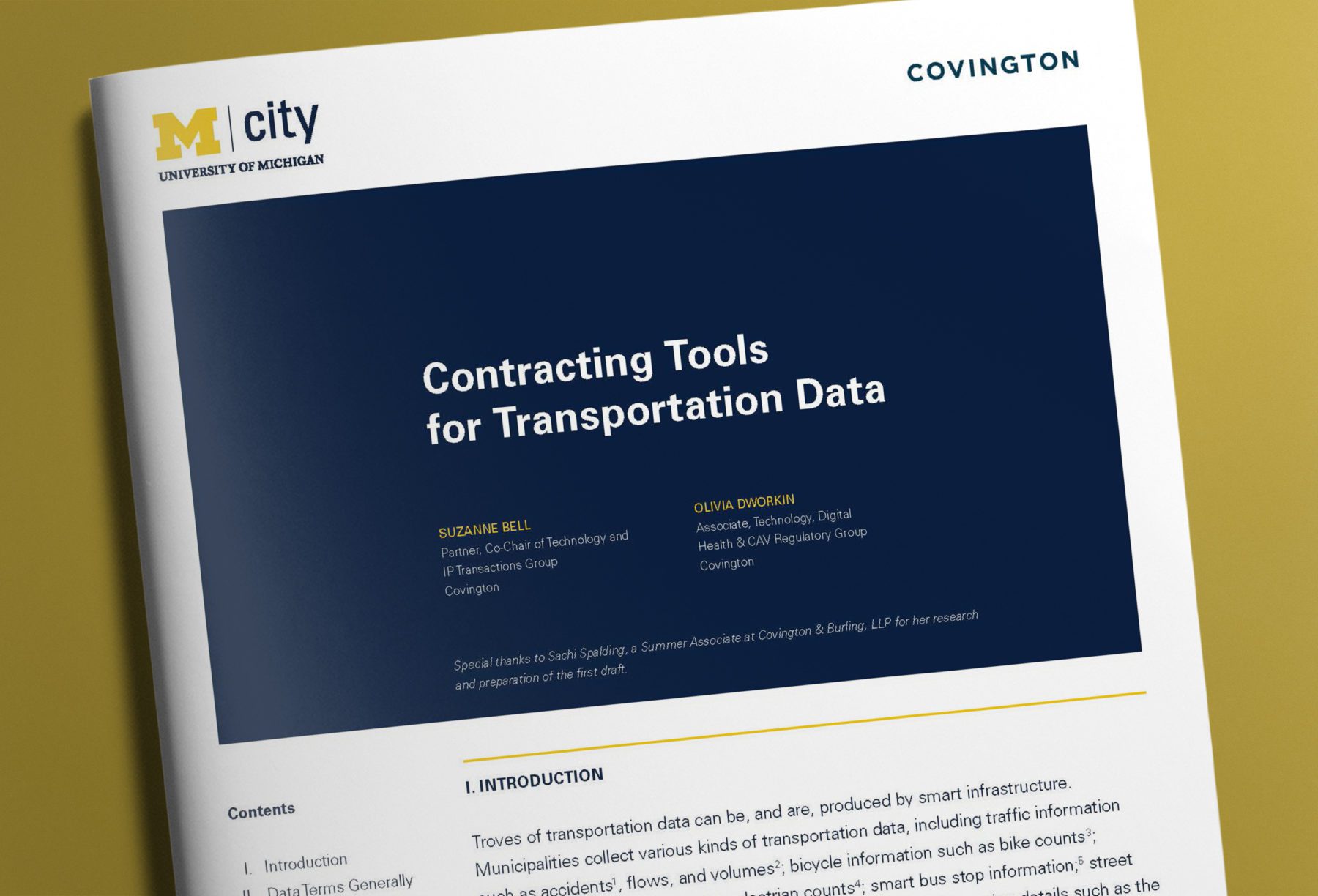Transportation data drives mobility innovation but lack of clear use standards can be barrier to access

Smart infrastructure produces a vast array of transportation data—from traffic volumes and crash statistics to pedestrian counts, bike counts, street mapping information and more.
All of that data is a treasure trove for city governments, nonprofit organizations and businesses that rely on it to help develop ways to reduce traffic congestion, improve road safety and make mobility more accessible to more people.
But accessing and using municipal transportation data can be challenging as there is a lack of standardization and clarity in the permissions granted with data when it is made available.
In a new white paper published today, Covington & Burling LLP, a Washington, DC-based global law firm and a member of Mcity’s Leadership Circle of industry partners, identifies barriers to the accessibility of transportation data, and explains the pros and cons of license provisions and contracting tools available to data providers.
The paper examines data agreements in use in four states (Michigan, California, Pennsylvania and Arizona), and outlines key considerations for data providers in defining the terms under which they make their data available.
It is the second in a series of four data policy white papers being published by Mcity in partnership with Covington.
The white paper is titled, “Contracting Tools for Transportation Data.”
The first paper in the series, published in June 2022, is titled, “Data Governance Frameworks for Smart Cities: Key Considerations for Data Management and Use.”